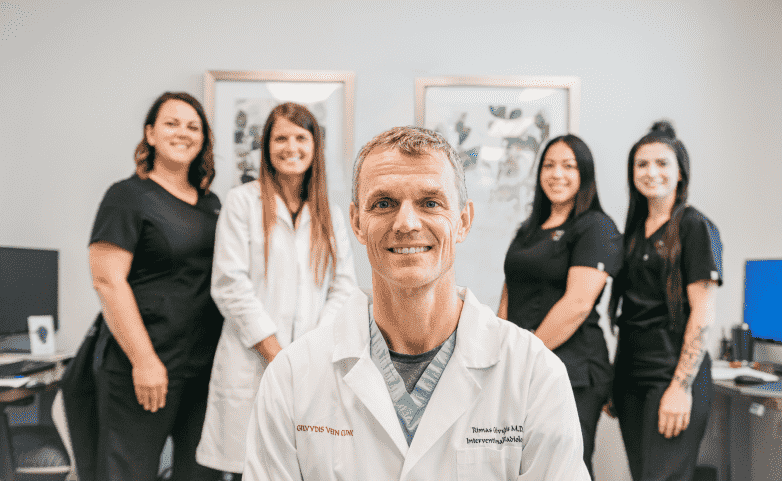
Get back to yourself.
We’re proud to be one of three vein centers in Illinois with an IAC accreditation. Get back on your feet with a team of vein specialists who help you understand your vein treatment options.
With leading-edge, minimally invasive vein treatment options, we provide quick and convenient in-office treatment with excellent results that require little to no discomfort or downtime. We have offices in Rockland, Naperville, Geneva & Sycamore, IL.
Vein disease is more than just a cosmetic concern—it’s a medical issue that can impact your comfort, mobility, and overall health. Left untreated, varicose and spider veins can lead to leg swelling, skin changes, blood clots, and even venous ulcers. Many patients dismiss symptoms like aching, heaviness, or fatigue in the legs as part of getting older, but these are warning signs your veins may not be working properly.
Modern vein treatments are minimally invasive, highly effective, and often covered by insurance. At Gilvydis Vein Clinic, we believe you shouldn’t have to live with pain or limit your lifestyle. Our team uses advanced technology and proven techniques to restore healthy circulation—so you can get back to doing what you love, without discomfort holding you back. Vein treatment is about more than how your legs look—it’s about how you feel. Let’s help you feel better, faster.
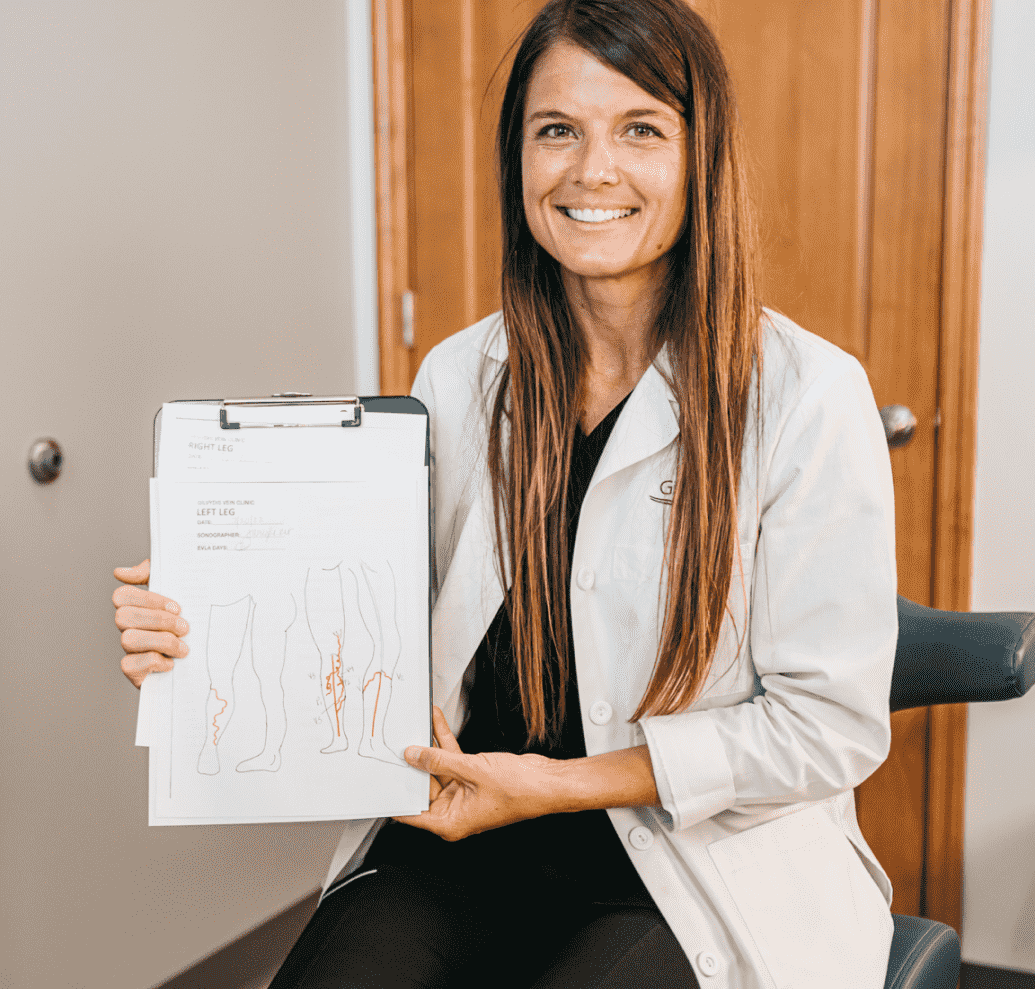
Ultrasound vein mapping, also referred to as vascular ultrasound, is a diagnostic examination that allows your vein doctor to assess unhealthy veins not visible to the naked eye. Ultrasound vein mapping is a quick and easy way to identify vein disease with no downtime.
It differs from other procedures in that it is a non-invasive technique that uses sound waves administered with an ultrasound probe. Our vein clinic leverages doppler technology to create a visual roadmap of the veins in the legs. The vein specialist is able to identify the size, depth, and flow of the blood so they can diagnose and treat the cause of vascular issues.
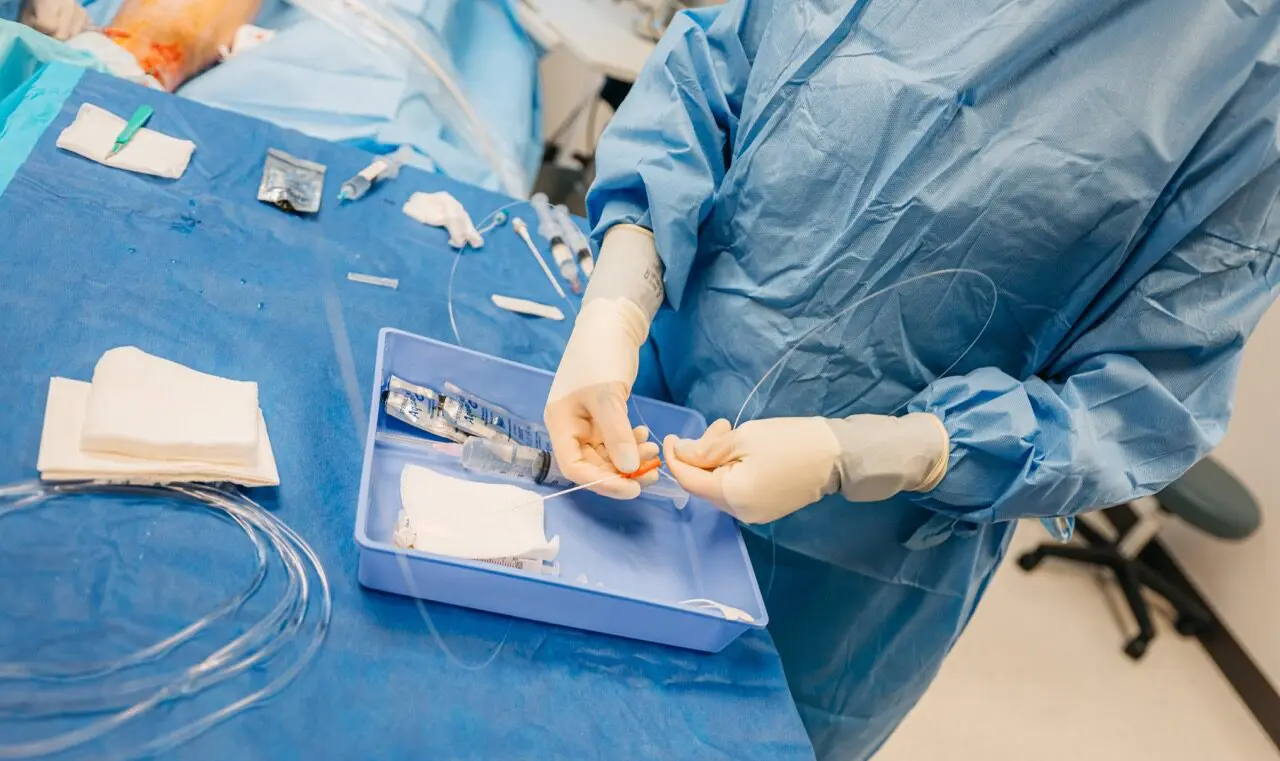
Endovenous laser ablation is appropriate for problems in the larger, deeper veins in the legs. Endovenous laser ablation (EVLA) is a minimally invasive procedure that allows you to get back to your normal routine in less than an hour. It is an FDA-approved, outpatient laser treatment that replaces the older surgical method of tying off and performing laser vein removal.
In EVLA, the laser heats and destroys the walls of the diseased vein, allowing the body to absorb the dead tissue. This varicose vein treatment is done at our state-of-the-art outpatient clinic. It is successful for 97% of patients after one treatment.
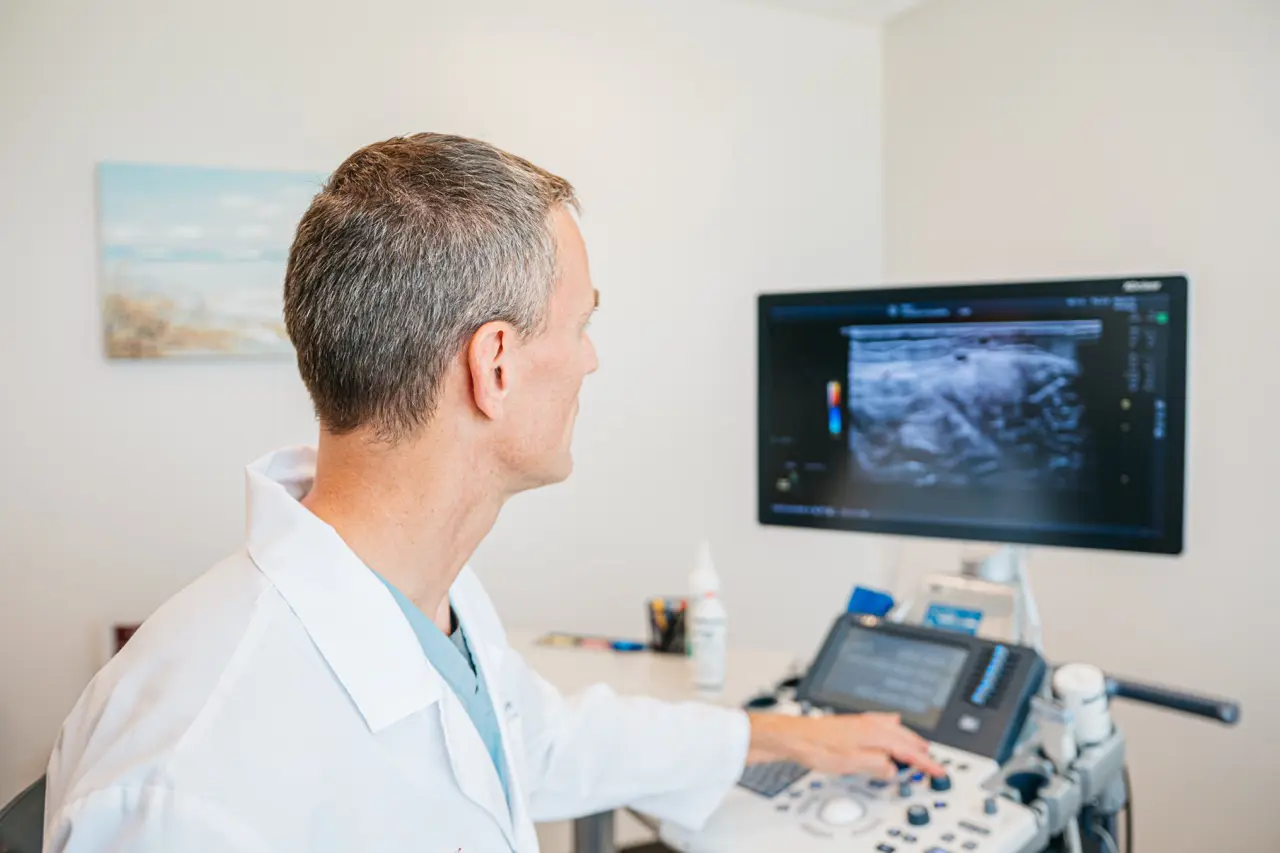
Sclerotherapy is a vein treatment procedure that is highly effective for eliminating varicose and spider veins. It involves injecting a saline solution through a very fine needle, causing the vein to collapse. It may cause mild cramping and discomfort, usually more pronounced for larger veins. The entire procedure is very quick, lasting only 15-30 minutes.
Before treatment, avoid applying lotions; however, taking medications is ok. Post-treatment recommendations are to avoid aerobic activity for several days.
Vein disease is progressive and will get worse over time if left untreated. If you are concerned you may have vein disease, such as varicose or spider veins, act quickly to seek a diagnosis and treatment. Get a leg up on life by contacting us today to schedule an evaluation.
You can plan 60-90 minutes to complete the exam after finishing a medical history. You will be provided with disposable shorts during the ultrasound of veins in your leg(s). The vein specialist will need to access the site from groin to ankle freely.
You’ll lie on your back for the procedure and be asked to remain still throughout the exam. The sonographer will apply some gel to the skin over the area where the wand will travel. The gel is a conductive medium that allows the sound waves to travel from the wand through the skin. You will feel some pressure as the sonographer moves the device over the veins, recording the images created by the echoes of the sound waves.
Once they have captured the images they need, the healthcare provider will review the vein mapping and explain the results to the patient.
First, an ultrasound vein mapping will be performed, and the veins marked on the skin with a pen. The endovenous laser ablation procedure takes place while you’re laying down on the exam table. The vein specialist will administer local anesthesia before inserting a laser catheter into the vein. The laser light travels through the laser catheter to heat and destroy the vein without impacting the surrounding tissue. You should feel little-to-no pain during the procedure, but you may experience some bruising.
Since EVLA is a non-surgical procedure, you do not have to abstain from eating or taking medication in preparation; in fact, you should eat a light meal one to two hours prior to the procedure. You should plan on being at the vein clinic for as long as two hours. Patients are on their feet immediately after the procedure and walking is encouraged. Endovenous laser ablation should not leave a visible scar, as the laser catheter only requires a tiny incision.
Though EVLA is considered a relatively minor procedure requiring little downtime, there are some recommended post-procedure recommendations. First, abstain from running or heavy exercise for two weeks after the laser treatment. Second, wearing a compression hose for up to two weeks can help with healing. If you have any discomfort, an over-the-counter pain reliever should take care of it quickly.
Sclerotherapy is a common treatment option used to correct spider veins and varicose veins. It’s a non-surgical procedure that is generally quick.
With Sclerotherapy, you’re out the door of our vein clinic in anywhere from 15-45 minutes. Sclerotherapy involves injecting a solution called sclerosant into the veins, causing them to scar. This forces the blood in your legs to run through healthy veins instead of problem veins.
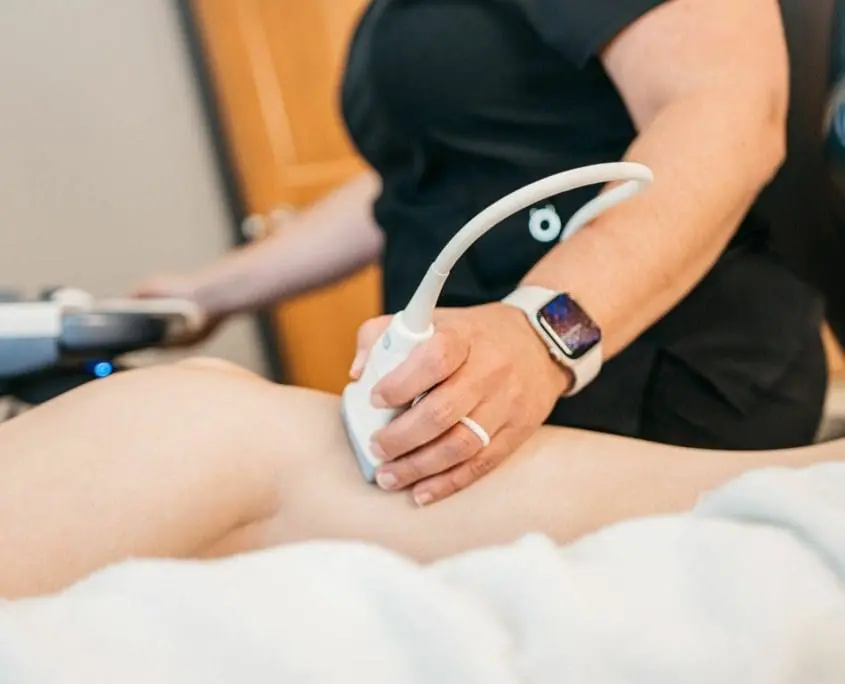

We’re proud to be one of three vein centers in Illinois with an IAC accreditation. Get back on your feet with a team of vein specialists who help you understand your vein treatment options.
Most patients experience little to no discomfort during treatment. Minimally invasive procedures like sclerotherapy and EVLA are performed with local anesthesia or tiny needles, resulting in very mild discomfort.
Recovery time varies depending on the treatment, however, you should be up and about in no time. Sclerotherapy has no recovery time. For EVLA, you may experience mild discomfort for a day or two.
You should consult a vein specialist if you experience pain or swelling in your legs, skin changes or ulcers around the veins, bleeding from the veins, increasing discomfort or visible worsening.
We’re proud to be one of three vein centers in Illinois with an IAC accreditation. Get back on your feet with a team of vein specialists who help you understand your vein treatment options.